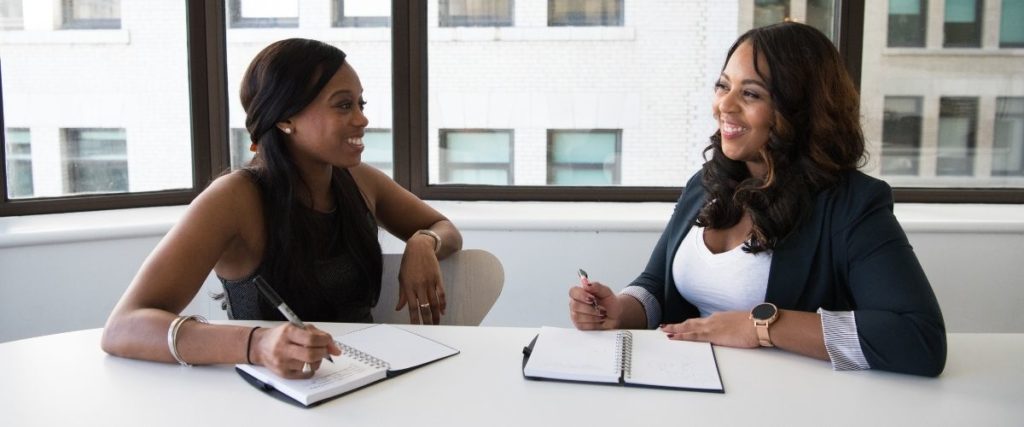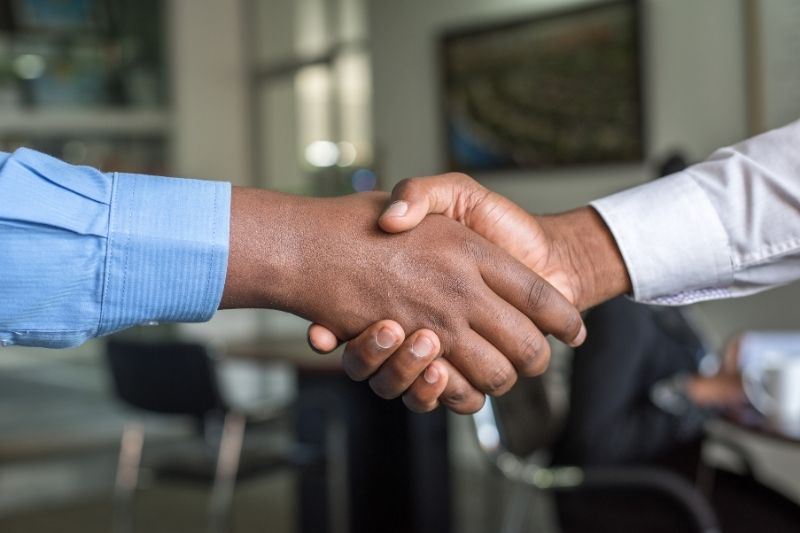Looking to land that dream job? Learn to master nonverbal cues, and perfect the small details. Here’s what you need to know to ace your next job interview.
Nonverbal communication makes up for a huge part of the impression you leave on people. Dr. Albert Mehrabian’s 7-38-55 study shows that human communication is 7 percent spoken, 38 percent tone of voice, and 55 percent body language. While the specifics have been debated by other academics, it is no secret that nonverbal cues certainly make an impact.
Aside from that, there’s nailing small talk, being personable, exuding confidence, and picking up on signals from the person you’re speaking to. Here are a few tips you can take with you to your next job interview, so you feel well-equipped to ace it.
1. Making the Mundane Memorable
“How are you?” is such a common phrase used by people as an opener in a conversation, so how do you stand out with your response? Instead of answering this question with the short and common “I’m good, and you?”, use this opportunity to make the mundane memorable. Answer by elaborating on your day to not only make yourself more interesting but also make it open-ended to allow the conversation flow naturally. Engaging in small talk can also establish trust and make them comfortable around you. It also allows the interviewer to see how well you fit into a company’s culture.
2. Mastering the Rules of Handshakes
Handshakes or elbow bumps have their own sets of rules since these greetings vary across cultures and habits, especially these days, with many wary of shaking hands due to coronavirus. Let the interviewer initiate contact. When engaging in a handshake, smile and shake hands firmly. Maintain eye contact and a pleasant expression after.
3. The Art of Mirroring
The mirroring technique is a great way to establish rapport and form a comfortable relationship of mutual trust. This technique works on a subconscious level. Mirroring is not the same as mimicking; it is the practice of subtly adopting another person’s mood, posture, tone and actions. For example, if the interviewer put his hands on the table while listening to your answers, you should wait 30 to 50 seconds before putting your hands on the table, or at least leaning forward. When mirroring, you should not exaggerate or copy all actions as that can irritate the interviewer. Because mirroring should not be first done in an interview, practise with a friend to master the art of it.
4. Avoid Vocal Fry or Upspeaking
Interviewers will likely pick up on some vocal shifts of your voice which can reveal whether you’re nervous or not. Vocal fry uses the lowest register in your vocal cords resulting in a growl-like sound, while upspeaking is raising your tone at the end of the sentence to make it sound like a question. Avoid voice patterns like vocal fry, monotone, and upspeak as those can make you sound unprofessional, bored with the conversation or unconfident. To find a balance, try recording yourself or ask a friend to practice with you and note down all the vocal shifts.
5. Framing an Answer
During a job interview, you are trying to persuade the interviewer. When an interviewer asks you a question, it is an opportunity for you to display, and elaborate on, the fact that you possess the traits that they need. To prepare for these questions, make a list of your strengths and accomplishments to be tailored or adjusted when responding to whatever question the interviewer throws your way. With practice, this allows you to avoid rambling or speaking too vaguely.
6. It Is Okay to Take a Pause
Some interviewers will try to catch you off guard, asking unexpected questions to see how you handle the pressure. We often feel the urge to immediately answer the question, fearing that the interviewer will think us incompetent. However, it is advisable to pause after the interviewer asks the question. Pausing allows you to hear the complete question, digest it and formulate a response you can be proud of. With practice, this will also allow you to avoid filler words like “um”, “uh” and “like”.
7. Never End an Interview Without a Question
If the interview is coming to an end, the interviewer will most likely ask if you have any questions. Use this opportunity to make a good impression, as this is a way to prove that you have done your research. Your response will help the interviewer determine how serious you are about the role you’ve applied for. These questions can vary from “In your opinion, what’s the best thing about working for this company?” or “How big is the team?”
8. Follow Up with a Thank You Email
Lastly, to end the interview on a high note, thank the interviewer in person, and then thank them again in a followup email. Sending a thank you email allows you to show appreciation for the opportunity and, ensure that you stay at the forefront of their mind when it comes to evaluating their options for the role. When writing your thank you email, mention something that you’d spoken about with them in the interview, which could be a shared hobby or something of that nature. Be sure to keep the email short, with an attached LinkedIn link in the end.
Related Articles
Top Business Coaches and Firms in Hong Kong
Employee Engagement: What it is, Why it’s Important & How to Improve It
Employee Pulse Survey: How You Can Increase Your Employee Engagement







